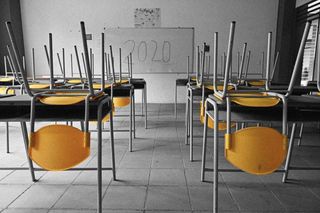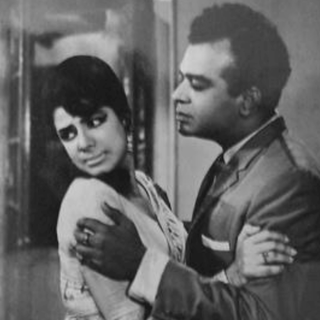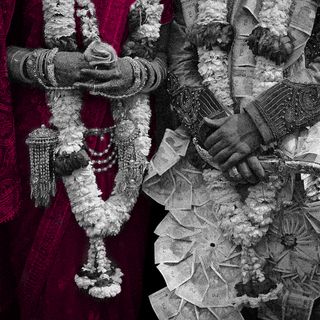
Will the Pandemic Make Indian Society More Accepting of Gap Years?
With little clarity on whether schools will reopen, parents, students, and educators are considering all their options, including ‘alternative’ approaches to children’s enrichment.

“The last few months have been emotionally confusing as a parent. My child’s safety is the most important,” says Bhagyalakshmi S. After weeks deliberating with peers, she seems close to deciding on a break from formal education for her children this academic year.
Months of waiting on state and central government directives has led many parents to similarly explore alternatives to physical schooling within the ongoing Covid19 pandemic, observes educationist Fatema Agarkar. A large percentage of them remain undecided on the way forward. Some are breaking away from formal schooling, referring to the 2020-21 academic period as a gap year.
In a country where the concept of a ‘gap year’ is fairly stigmatized, this seems like a radical shift in the mindset towards education. Closer examination, though, reveals a reluctance to embrace the idea in its entirety. A gap year is meant to be a break from formal education – usually taken before, during or after college – in pursuit of self-discovery. Most parents in India, however, are continuing to stick to structured syllabuses within their individual capacities this year. This ranges from students attending online classes at a pace that suits their parents’ work schedule, to being home-schooled by caregivers and qualified tutors. This is perhaps a reflection of the Indian academically driven culture’s inability to pause curriculum-centric learning, even amid a global health crisis.
Because success hinges on an uninterrupted academic-career trajectory in India, a gap represents falling behind. Bhagyalakshmi understands that it will be awkward for her daughter to resume school in a grade lower than her current classmates if she opts to take a gap year. In case she is unable to secure admission to the higher grade, Bhagyalakshmi is willing to switch schools to avoid the emotional stress associated with this.
Related on The Swaddle:
The Indian Study Abroad Dream Is Dashed. Will We Finally Redefine Success?
This attitude is underscored by a recent survey conducted in Telangana, where 89.4 percent of parents don’t support schools reopening due to health concerns. Yet, 62 percent want 2020 to be declared a ‘Zero Academic Year’ – that is, no classes but with guaranteed promotions to the next grade.
“Academics have been affected for all in lockdown,” says Aasia Muneer, an educator at an undergrad school. She, too, has deferred a nursery admission for her three-year-old and is considering a gap year for her two older sons due to financial reasons. “I’m more worried about keeping them mentally healthy and giving them an enriching experience,” she adds.
But this decision becomes weightier for older students facing the hyper-competitive world of college entrance exams. According to Avnita Bir, director-principal of RN Podar School, Mumbai, the upheaval caused by the pandemic nullifies the inherent stigma of a gap year for Year 12 students to some extent. The decision, then, depends on the risk-taking appetite of the family, she says.
In a tightly-knit Indian family setup, the decision on any sort of break from formal schooling is also influenced by other family members. With elders holding the power, one’s parenting choices are under constant scrutiny, says Satish deSa, who is a teacher himself. “Even though I am pretty open to a gap year, elder-parental pressure will be immense. They are more traditional and resistant to change,” concurs Muneer.
Although deSa and his wife are able to homeschool their children, virtual education and the related additional responsibilities are a full-time job, which is especially challenging for working parents. Dr Shruti Tandan-Pardasani points to a school’s attitude towards academic achievement as key to helping families navigate this year. She and her husband, both Covid19 frontline workers, attend Zoom classes with their daughters at a pace that their work schedules permit. “Our school is more laid back and understands what kind of turn life has taken. But I do see a lot of [other] schools where parents are not able to cope with the curriculum,” she says.
In an overly academic culture, where educational institutions are akin to status symbols, parents feel compelled to safeguard a secured seat. A few continue to pay fees in full, despite opting to homeschool. Pointing to the ripple effect of delayed payments and admission withdrawals, Agarkar expresses the need for an empathetic approach towards the education ecosystem. Both aspects may indirectly push parents to fall in line within a setup where financial security is an underlying criterion in admission screenings.
Related on The Swaddle:
School Closures Due to Covid19 Will Increase Gender Gap in Education: UNESCO
The pandemic provides impetus for introspection on the Indian approach to education, but the chances of it effecting far-reaching change seem slim. Despite the emergence of local gap year programs by alternative learning institutes like Swaraj University and Shikshantar in recent years, many remain worried it will dampen further study prospects. Parents are usually curious about unconventional options, but seldom risk it with their own children, observes Avnita Bir.
However, this period might prove to be an exciting opportunity to explore schooling alternatives, away from outdated curriculums, offers Urmila Samson. The mother of three 20-somethings practiced unschooling – a form of child-led learning, free from formal curriculums, where caregivers serve as facilitators rather than teachers. Samson stresses the fact that effective home education also requires better community and systemic support systems for parents, such as daycares.
Schools should shift their outlook to a more student-centric one, in line with the changing times, adds Muneer. Referring to recent curriculum revisions by the National Council of Educational Research and Training (NCERT), Bir says it’s a much-awaited change. “It’s self-directed, the pace is slower and the child’s learning is definitely going to be longer lasting,” she explains.
A systemic overhaul also requires a sociocultural change in our attitude towards education. Good grades are still associated with life success, elaborates deSa. “Until that goal of education changes, our means to achieve it will stay the same.”
Gretchen Ferrao Walker is an editorial consultant who has collaborated with Indian and international publications like GQ India, Forbes India, Time Out, Architectural Digest India, National Geographic Traveller India, Design Anthology and Collectively.org. She is the former editor of travel bimonthly Time Out Explorer and current mum to a 2-year-old. She enjoys embroidering and making pictures.
Related


Woe Is Me! “How Do I Avoid Toxic Men?
